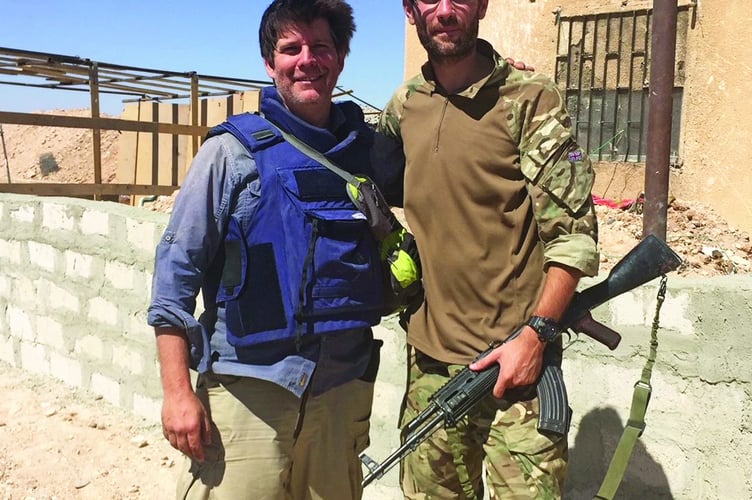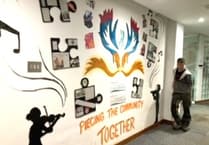A TELEVISION cameraman from Chobham is working in a Ukrainian city that is preparing to resist the onslaught of the Russian invasion.
Richard Perry has been in Lviv, a key location for refugee evacuation and military resupply routes, for three weeks.
While other parts of the country are being destroyed by shelling and bombing, Lviv has so far escaped major destruction. Long-range missiles have just started to land on military targets like the airport.
“If I was to look out from my hotel room balcony I would not be able to know there was a war on,” said Richard, who is working mainly with BBC presenter Ben Brown, broadcasting live reports for news bulletins.
“So far, the only sign of war has been an explosion about four miles away, although the alarms are constantly going off.”
Richard, aged 56, is a freelance member of one of the BBC’s “high-risk camera crews” in Ukraine. His team could be sent at any time to take their turn reporting from one of the front lines.

Lviv is 290 miles from the threatened capital, Kyiv, and 760 miles from Mariupol, which is being brutally flattened by the Russians. Tens of thousands of people are passing through Lviv to avoid being caught up in the war.
“We’ve been to the railway station to film the people coming from the east and the work of the Red Cross to look after them and pass them on to Poland,” added Richard, who has also reported from humanitarian aid distribution centres in undisclosed locations.
In a message posted on social media this week, he said: “I thought I'd make it clear to those that are busy collecting just how grateful the Ukrainian people are for your efforts and very useful the donated items are.”
Richard was a City stockbroker before becoming a cameraman. He was prompted to switch careers while watching TV crews covering the bombing of the Baltic Exchange by the Provisional IRA in 1992.
“I met cameramen that were filming the incident and it seemed they had an exciting job,” he said. “I retrained and started by working on promos and commercials, but then moved on to news reporting, which is much more worthwhile and rewarding.”
He has since filmed the conflicts in Iraq, Syria, Yemen and South Sudan.
Camera crews and reporters must complete special training courses before going to war zones and work closely with advisers who accompany them to keep them safe.
“We try in particular not to antagonise the local military and reveal their positions to the enemy,” said Richard. “We also have to consider that someone standing on a pile of rubble with a camera on his shoulder can look like a soldier holding a missile launcher to attacking troops.”




